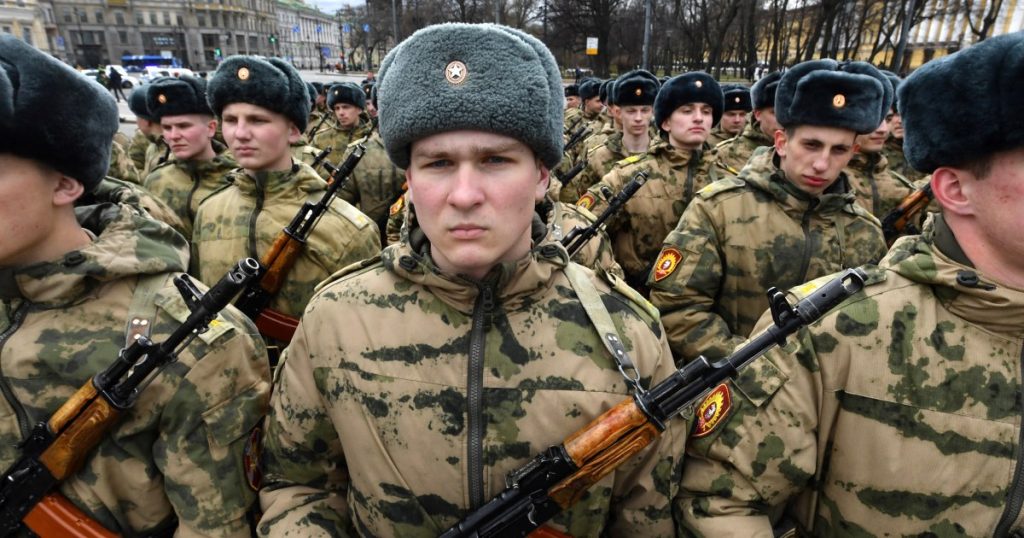The Kremlin announced that President Vladimir Putin has ordered an increase in the size of Russia’s army by 180,000 troops, making it the second largest in the world after China. This decision was made in response to growing threats on Russia’s western borders and instability to the east. The Kremlin spokesperson cited the need for appropriate measures to be taken due to an extremely hostile environment on the country’s borders. The International Institute for Strategic Studies (IISS) reported that Russia would surpass both the United States and India in terms of the number of active combat soldiers, coming in second only to China.
The expansion of the Russian army comes as Russian forces continue to advance in eastern Ukraine and attempt to push out Ukrainian forces from the Kursk region. The chairman of Russia’s lower house of parliament’s defense committee mentioned the need for new structures and military units to enhance security in the northwest of Russia following Finland’s NATO membership. Furthermore, Russia has expressed concerns about the increasing U.S.-backed militarization of Japan and possible plans to deploy U.S. missiles in the region. Despite having a significantly larger population than Ukraine, Russia has also faced heavy losses in the ongoing conflict, with no foreseeable end to the war.
Putin has previously implemented two official increases in combat troops since sending the military int Ukraine in 2022. Russia mobilized over 300,000 soldiers in September and October 2022 in a military exercise that prompted mass defections of draft-age men. However, the Kremlin has stated that there are no plans for a new mobilization and will instead rely on volunteers signing up to fight in Ukraine. Dara Massicot, an expert in the Russian military, questioned whether Moscow is prepared to afford the increase in active servicemen. She suggested that Russia may need to expand the draft size or allow more women to join the military to achieve this goal.
Massicot also raised concerns about the financial strain of sustaining a 1.5 million-strong army and speculated about the possibility of this being an intimidation measure rather than a genuine recruitment initiative. She emphasized the current method of recruiting volunteers, but noted that it has its limitations. Moscow may face challenges in boosting the defense budget to sustain procurement and meet the requirements of a larger military force. Massicot’s report on Russia’s army regeneration highlights the need for the Kremlin to carefully consider the implications of this expansion. Moving forward, it will be crucial to assess whether this decision is a genuine effort to recruit and expand the army or simply a display of power.


